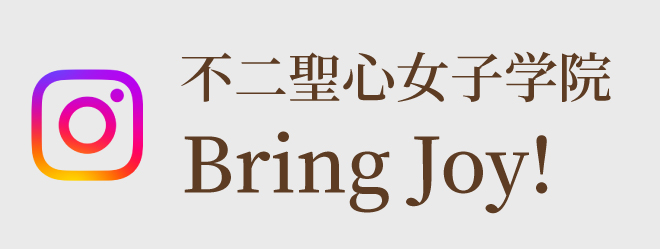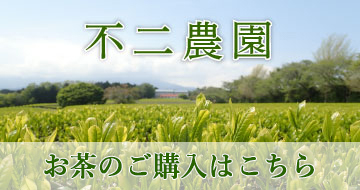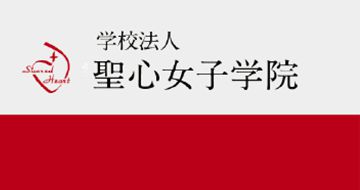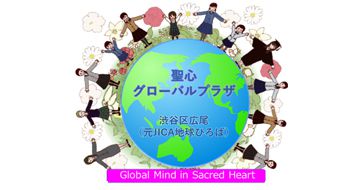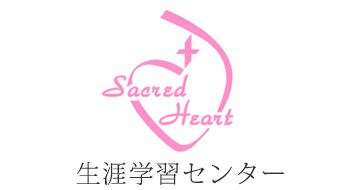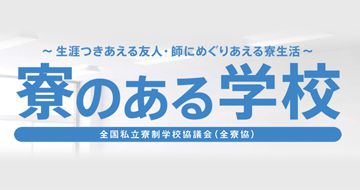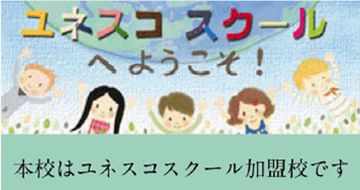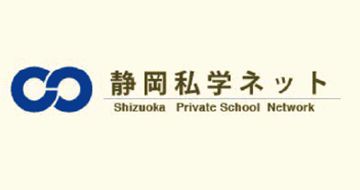ACADEMIC
The academic year is comprised of two semesters: the first semester from April to September and the second from October to March. Student evaluations are based on 4 main exam scores, daily assessment marks, and their class participation.
Curriculum
The academic curriculum of Fuji Sacred Heart High School is based on the one set by the Japanese Board of Education. Please click here to see more about the curriculum.(For 2023 3rd-Year Students)( For 2023 1st and 2nd Year Students )
You can also see the university admissions of previous students here. (PDF)
UNESCO Associated School
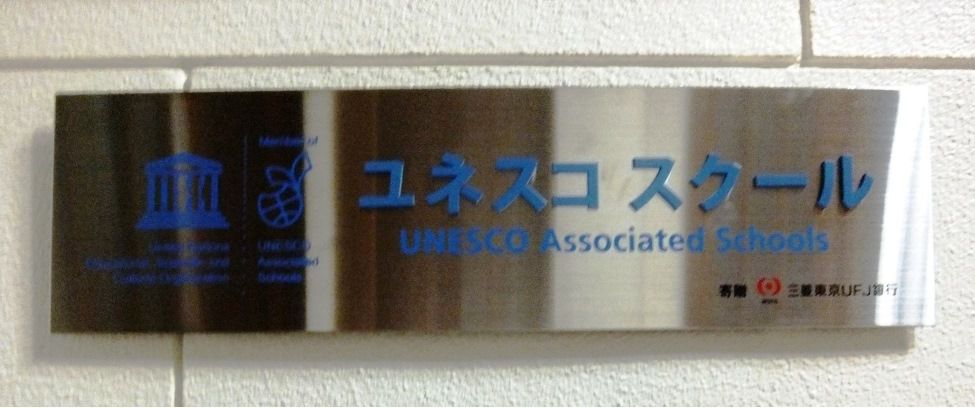
Fuji Sacred Heart is authorized as a member of the UNESCO Associated Schools Network because of our emphasis on environmental awareness, cross-cultural understanding and service for charity work. Making use of our rich property, we give priority to environmental education. We educate students to be conscious of Sustainable Development and Sustainable Development Goals. Not only students but teachers actively participate in workshops, meeting people from different backgrounds as well as those from Sacred Heart Schools around the world, to contribute to creating a better world.
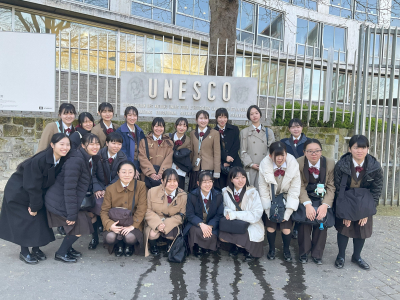
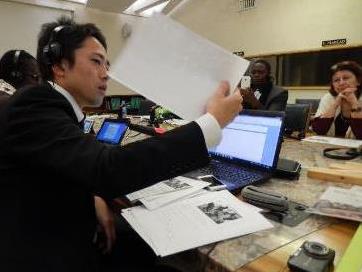
Religious Education
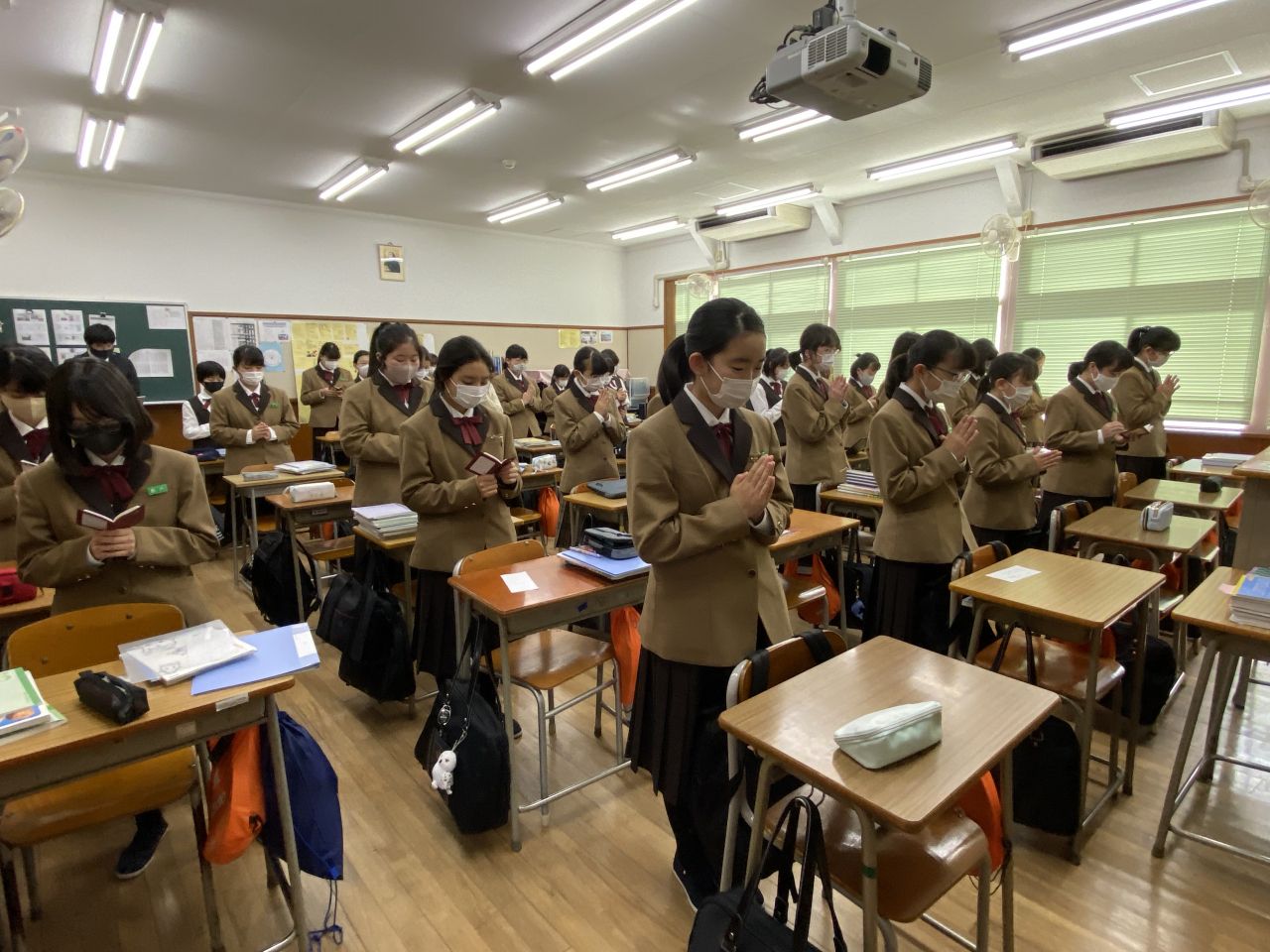
Fuji Sacred Heart is a missionary school where students get to know themselves better and deepen their relationships with people, society and nature. It is our hope that students will gradually realize that each of them has a special mission in their life and that they will endeavor to fulfill the purpose of their life even later in their life.
Religious Talks
Every Wednesday morning students listen to a teachers’ talk on the school public address system. This is a prayerful moment and a precious time for students to deepen their inner thought and cultivate their heart by listening to teachers’ ideas about life and thoughts.
School Chaplain
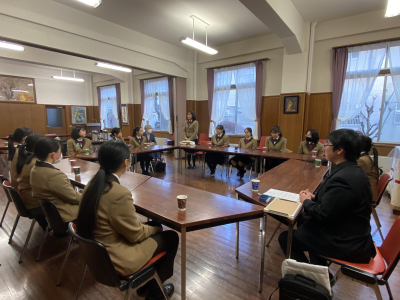
The Chaplain, who is a Catholic priest, plays an important role in our religious education to give advice on religious celebrations and events and lead meetings for baptized Christians and the students who want to learn more about the Bible and Christianity.
“Inori no Kai” ( Retreat )
In September all the students go on retreat, called “Inori no Kai,” where students reflect on their life through a priest’s or a nun’s talks and share their ideas. Each student has their own notebook to make only on September retreats and this is a good record of their spiritual growth.
The 9th graders go to Nagasaki, the first foothold place of Japanese Christianity, and the 11th graders go to France to follow the footsteps of St. Madeleine Sophie Barat, the school foundress.
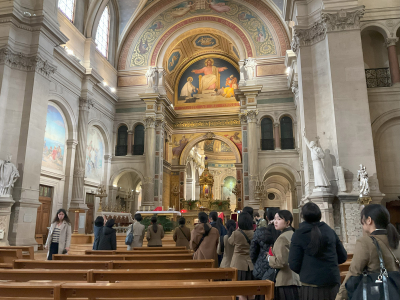
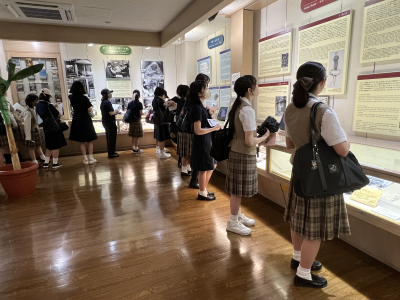
Religious Celebrations and Events
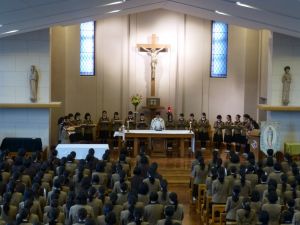
April: Prayer Gathering
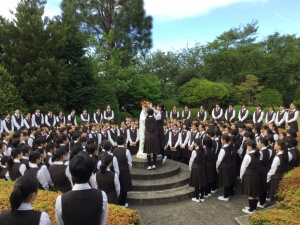
May:Prayer to Our Lady
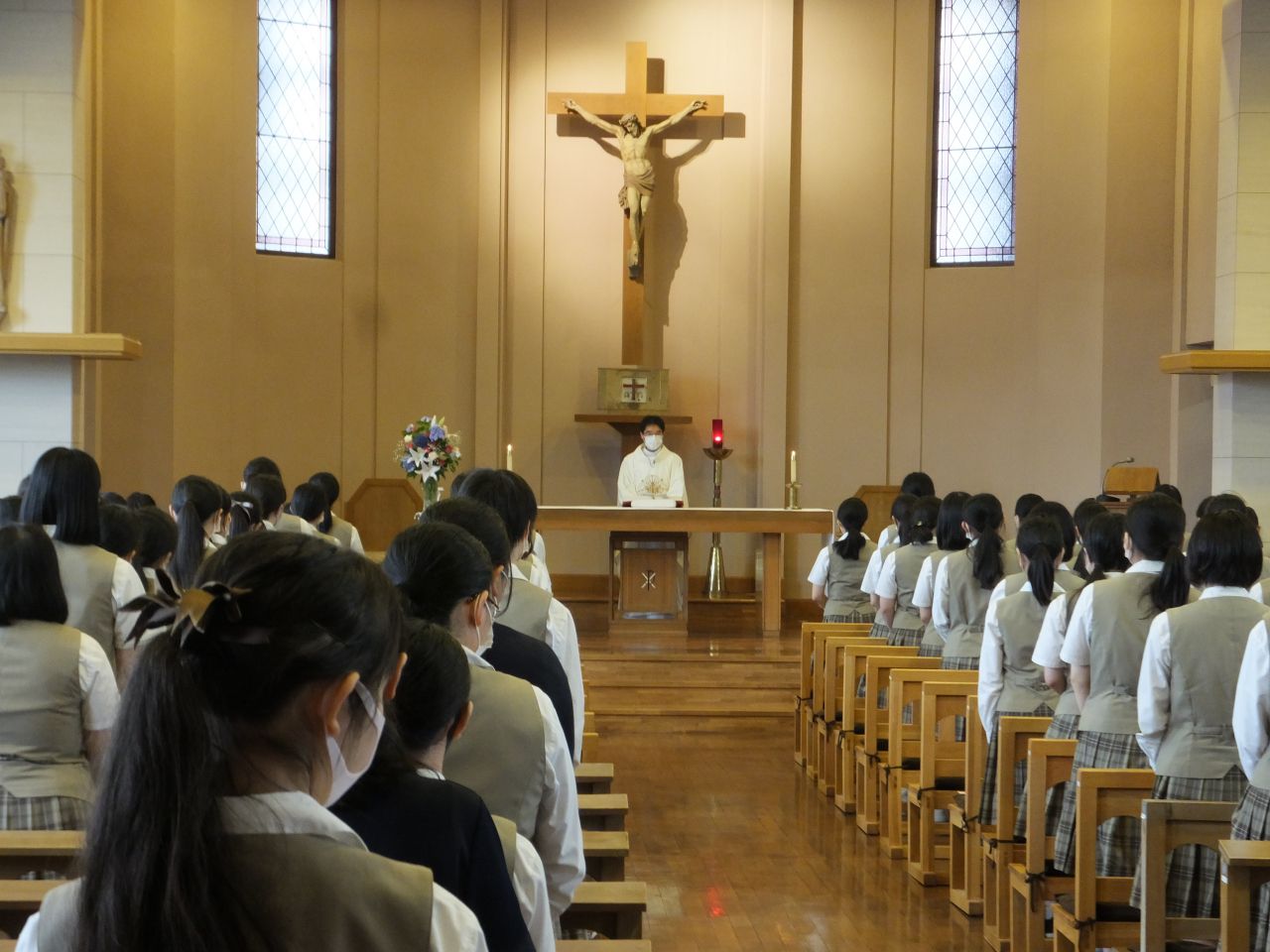
June:Solemnity of the Most Sacred Heart of Jesus
( Mass Followed by Charity Work)
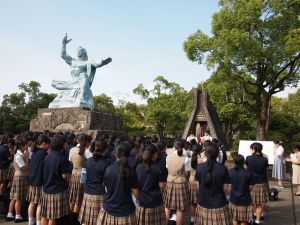
September: Retreat (Nagasaki)
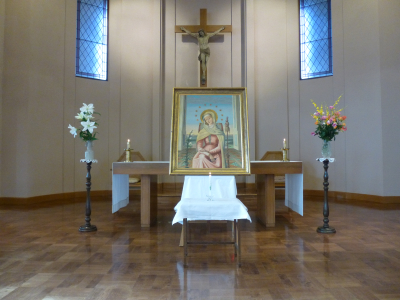
November:Mater Admirabilis
To see more, visit https://rscjinternational.org/news/mater-admirabilis.
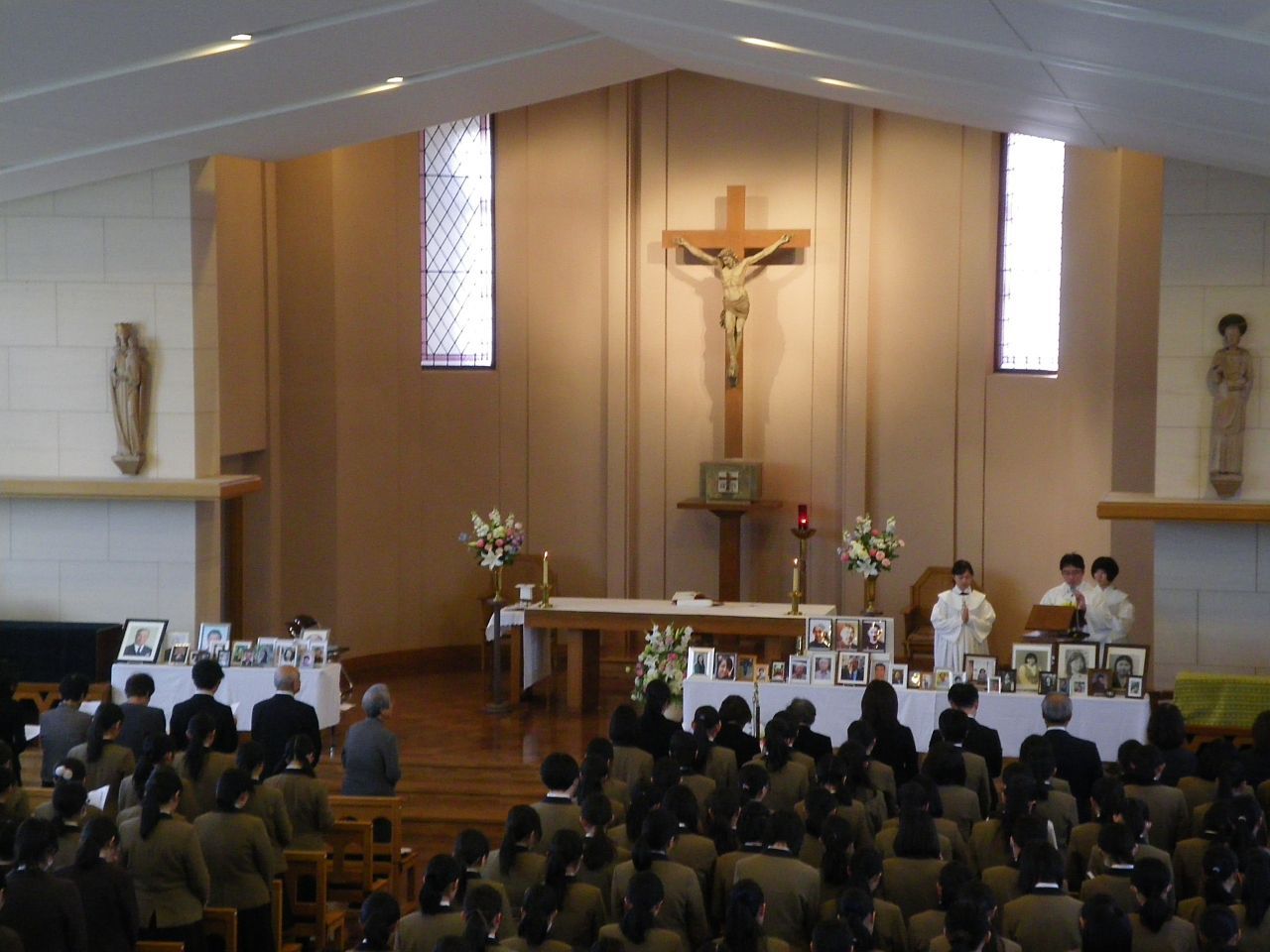
November:Memorial Mass
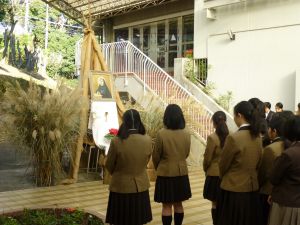
November: Memorial of St. Rose Philippine Duchesne
(Patron Saint of Fuji Sacred Heart School)
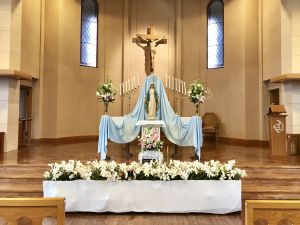
December: Lily Procession
(Immaculate Conception of Mary)
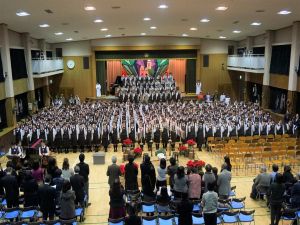
December:Christmas Carol Service
(Followed by Charity Sale)
Parents’ Groups
<Fathers’ Group>
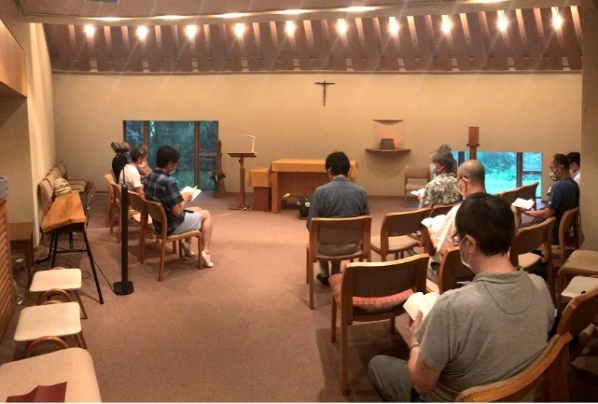
This is a group led by Jesuit priests, which is held at the retreat house on the campus once a month. All fathers are welcome, even though their daughters graduated many years ago. Once a year there is a retreat for fathers of all Sacred Heart Schools in Japan, and they stay one night there.
<Mothers’ Groups >
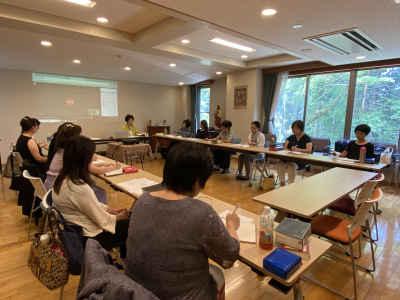
There are four groups for mothers, divided according to the grades their daughters belong to. Catholic nuns of the Society of the Sacred Heart lead each group to read the Bible and share their ideas about life. There is a one-day retreat at the retreat house on the campus in July. All mothers are welcome, even though those whose daughters graduated many years ago.
Language Education
< Junior High School >
♦All English!
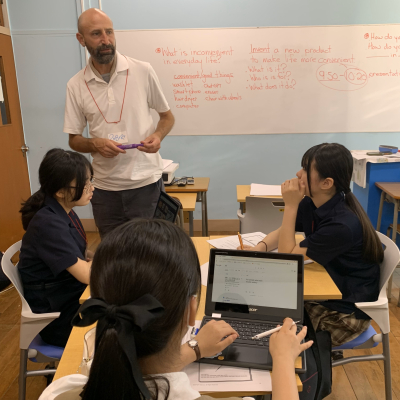
English lessons, even in the first year, are taught all in English. The 8th graders go on an English camp in summer, where students are encouraged to use English as a means of communicating with people from other countries. This is a great encouragement for students to continue to learn English voluntarily later.
♦Improving Writing Skills by Reading
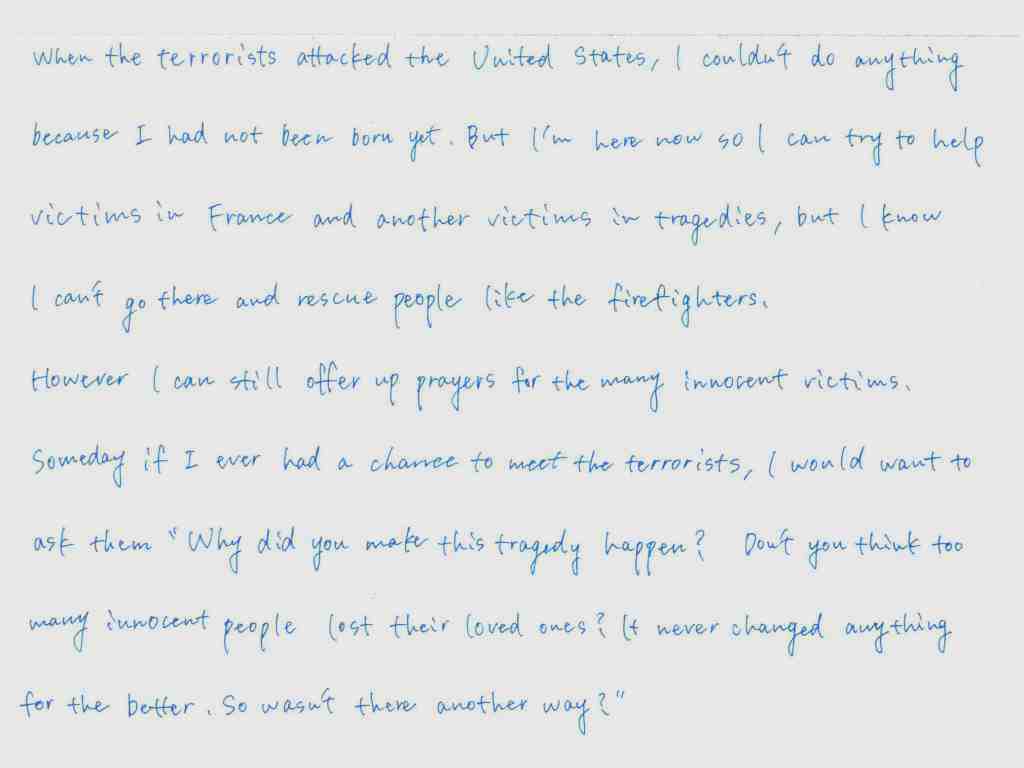
Students are encouraged to read in English during holidays through the assignments to read English novels and stories in addition to textbooks. We believe that writing, which is one of the skills the school expects students to develop, can be improved by reading a lot, especially the expressions and vocabulary students come across through reading.
♦Expressing Ourselves in English
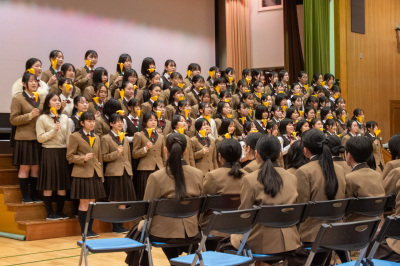
The importance of expressing ourselves in English is highly valued in school life. One of the opportunities for this is a school English speech contest in January, where all junior high school students recite a few famous English poems like “The Daffodils” by William Wordsworth and some students make their original speeches and skits. We are proud of their command of the English Language.
< High School >
♦English Education in the Age of Globalization
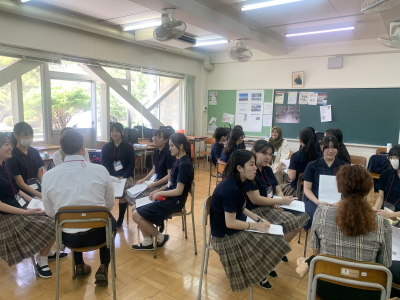
High school students are expected to learn voluntarily through “Active Learning,” where students themselves solve questions raised even by themselves through discussion, debating and presentation and finally write what they have learned. Students learn how to organize paragraphs and make an argument in English.
There is a three-day event called “English Frontier,” where students learn practical skills for a globalized society. This is an exciting and fun event for students!
♦English Presentation
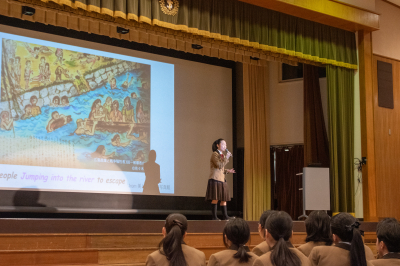
In order to live in a globalized world, it is essential for students to develop their skills to present ideas and arguments in English. With the advantage of all classrooms equipped with projectors, students make their presentations with educational apps in class.
♦Discussion on Social Issues
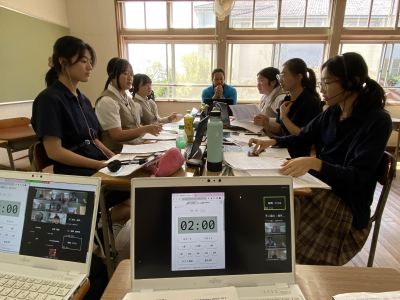
Students have many opportunities to use English in school life, as there are some exchange students from sister schools from abroad. Students train their speaking skills by discussions on more complicated social issues and current affairs like the American Election. The 9th graders are also encouraged to take part in a national debate contest in September.
♦French and German Education
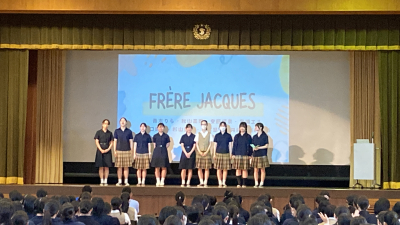
In response to the demands of the globalized age, French and German are taught as a second foreign language to the 11th and 12nd graders. Students learn basic French and German in all four skills; first listening, followed by speaking, reading and writing. This is a practical preparation for the Pilgrimage to France.
Integrated Studies
< Junior High School >
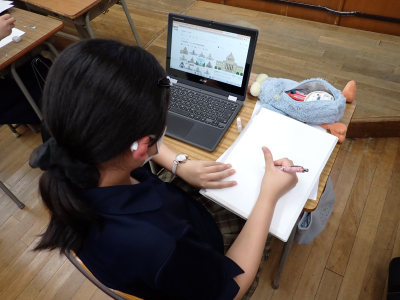
Junior high school students do research on one theme. They raise questions, answer them and write their findings and conclusions. They will gradually learn how to do research and develop their critical thinking and broaden their points of view. Their reports are exhibited on Akino Tsudoi (school cultural festival) in November.
7th Graders
All the students work on the same topic in small groups. This is an introduction to writing a report, for example, how to choose a topic, find books and write in a certain format.
8th Graders
Students work in some groups according to the topics they have chosen. There are usually four topics or so. Towards the end of the academic year, students start their preparation for the graduation report.
9th Graders
Each student works on the topic they have chosen for their graduation report throughout the year, including the individual interview after the submission. Almost all students work on a computer under the guidance of their own surperviser.
< High Schools >
10th Graders:Environmental Studies
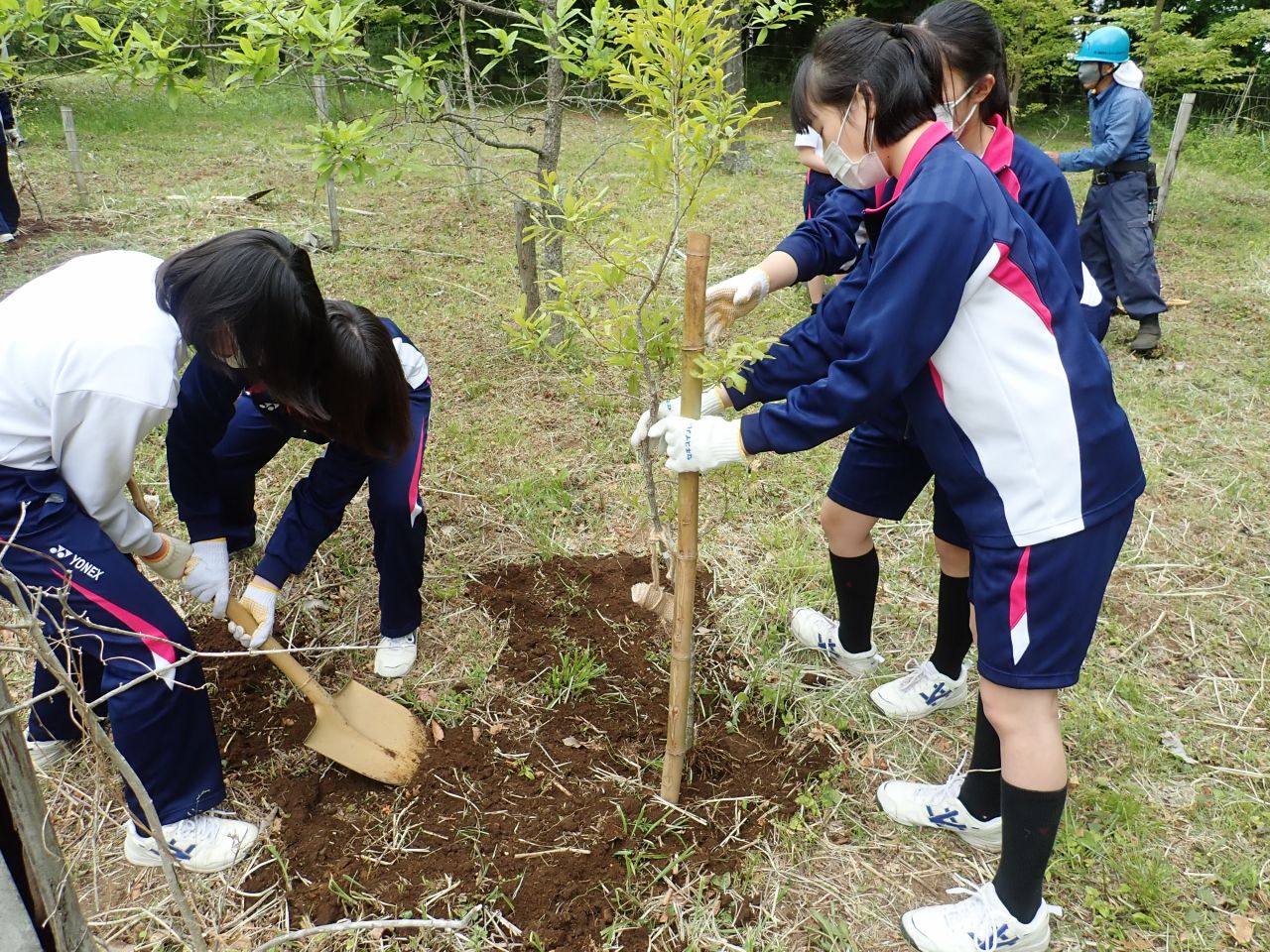
Making the most of the rich environment on the campus, the school offers students unique lessons on the environment. There are lessons on Forests by thinning the forest on the campus and on Forest Preservation as a means of slowing down global warming by Model United Nations. Students also learn about the environment and multicultural symbiosis in order to contribute to Sustainable Development and Sustainable Development Goals. One of the lessons on woodworking using wood from the campus was introduced on the homepage of National Institute for School Teachers and Staff Development.
http://www.nits.go.jp/jisedai/achievement/jirei/jirei137.html
11th Graders:Pilgrimage to France (Paris)
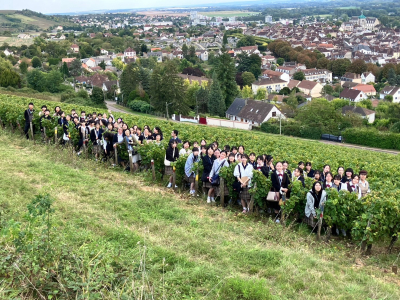
In September students go on Pilgrimage to France for seven days, following the footsteps of the foundress of the Society of the Sacred Heart, St. Madeleine Sophie Barat. The purpose of the pilgrimage is to understand more of the spirit of St. Madeleine Sophie and France, the country where the School of the Sacred Heart originated, and to consider how each of us can live the spirit of the school foundress in the present age by visiting the Headquarters of the UNESCO.
12th Graders:Humanics
Students consider various issues they will face after graduation through discussions, lectures and debating.
Independent Research
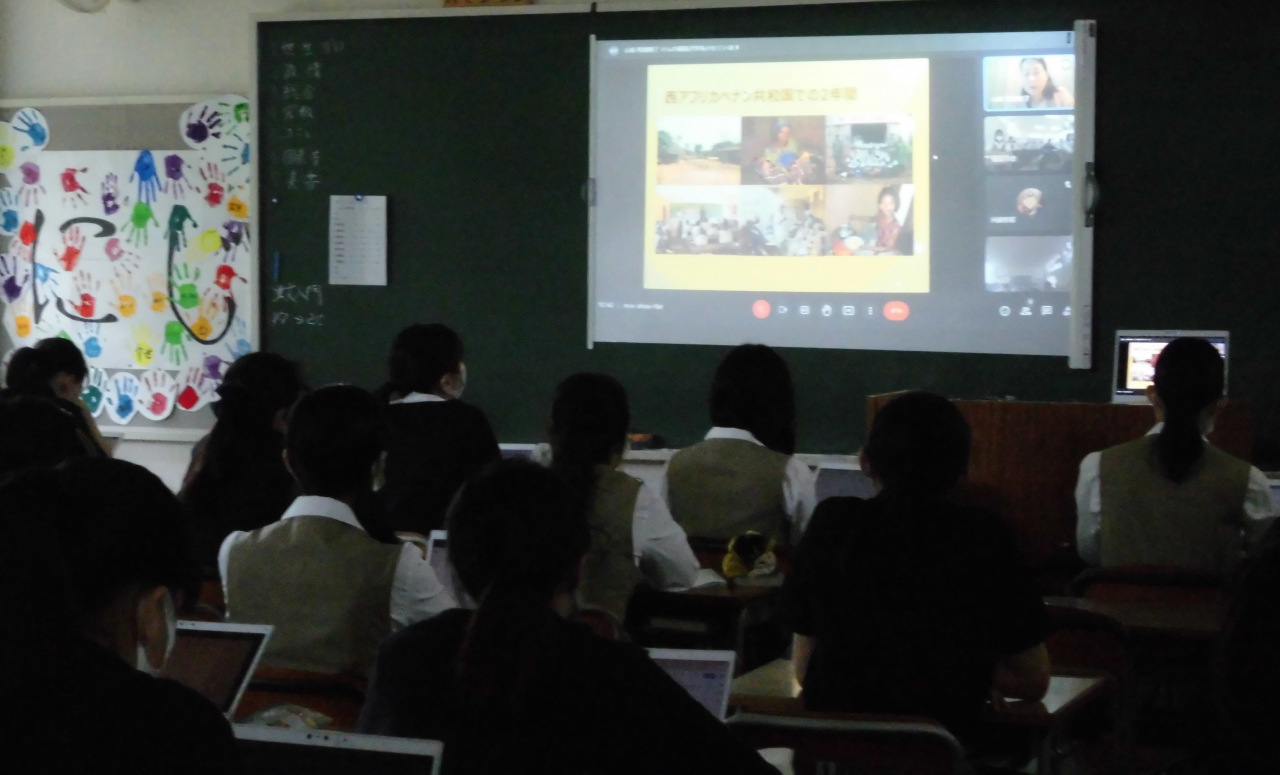
Some students do their independent research to deepen their interests. It is often the case that through the research students get a clearer vision for their future and what they will continue to learn at university.



